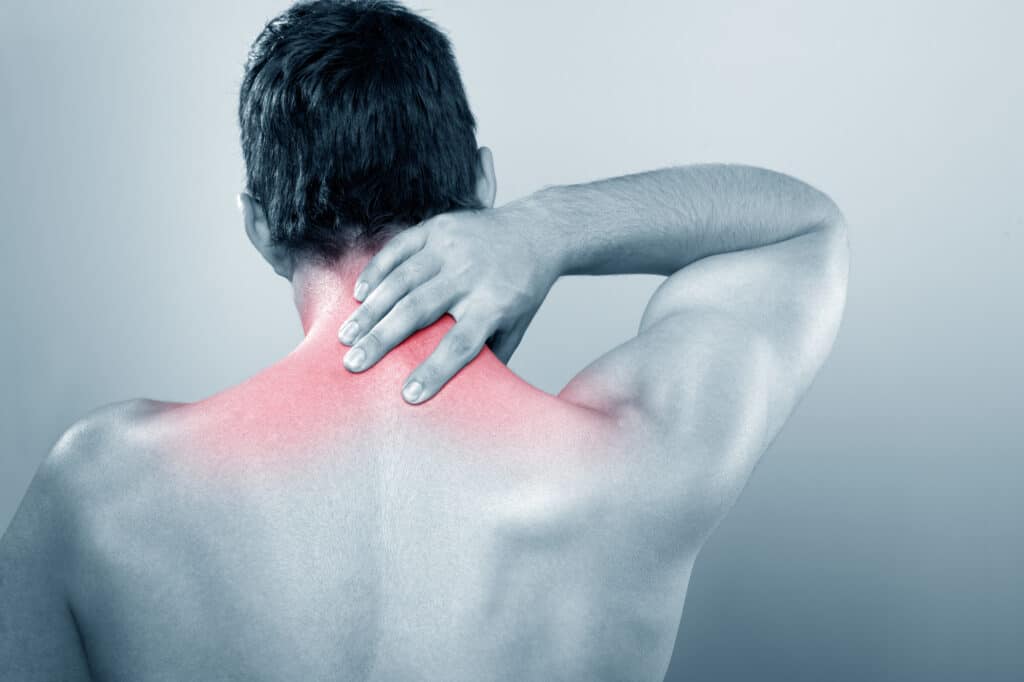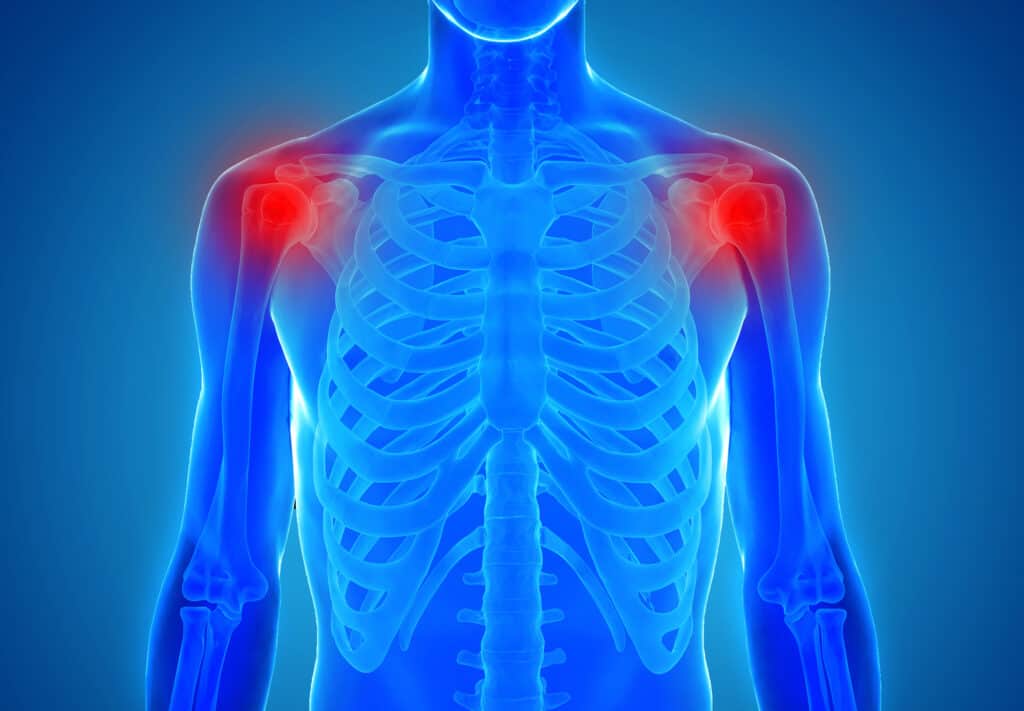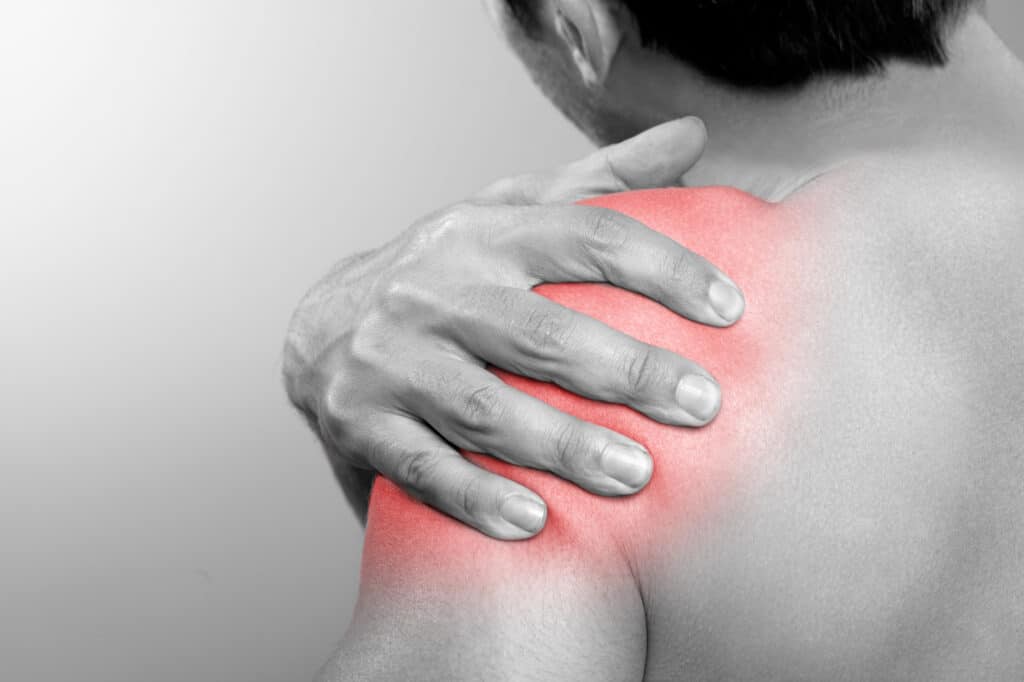
If you're living with a pinched nerve in your shoulder, chances are it doesn't take much to cause you considerable pain - even something as simple as reaching for something on the top shelf at your local grocery store can cause burning pain.
As you go about your day-to-day life, it's easy to overlook these little aches and pains.
However, if left unchecked, these pains can become more than just a little inconvenience - they can evolve into chronic discomfort that can severely impact your quality of life.
Sometimes, even leading to major surgeries, A pinched shoulder nerve is a perfect example of an issue that can cause chronic daily pain.
But the biggest challenge is finding out how to manage and treat this condition. While there is no one-size-fits-all solution, we have put together some tips and advice that may prove helpful if you are struggling with a pinched nerve in your shoulder. Don't worry; we're here to help.
When dealing with a pinched shoulder nerve, it's important to be aware of your symptoms.
Knowledge of the anatomy and physiology of the shoulder and the nerves that run through it can also help you better understand why your condition is occurring and help you take steps to prevent further damage.
In this blog, we explore what causes these types of pains and the typical treatments involved and advise you on how to control your symptoms.
More Articles From Apex
What Is The Cervical Spine, And Is It The Cause of my pain?
Can I Get Immediate Relief For Sciatica Pain?
What Is Causing Pain In My Shoulder?
What Causes Pinched Nerves in Shoulders?

Pinched nerves in the shoulders can be incredibly uncomfortable and detrimental to all aspects of your life – from your work and social life to your relationships.
But what causes them? Well, it can vary, but they commonly occur due to an injury, poor posture, or repetitive movements you do all day at work or while playing sports.
They all affect the proper alignment of your bones and muscles, putting pressure and compression on the nerves in your shoulders.
This compression is what leads to problems like a "pinched nerve." They don't just happen in the shoulder, either. They can happen anywhere in the body.
There are 7 trillion nerves in your body, so there is a lot of potential for one or more of them to cause problems across your lifetime.
Other potential causes of a pinched nerve in your shoulder include spinal stenosis, arthritis, or even a herniated disc in your neck.
So, finding out what is causing the issue for you is important to help prevent further damage and/or potential surgery.
There is hope, though; we can remedy pinched nerves, help mitigate the discomfort, and enable you to live a pain-free life by freeing up the joint and soft tissue and teaching you a range of stretching and posture exercises.
In most cases, patients already have a fair idea of what might have caused the issue, but we can pinpoint the issue more precisely. Although in many cases, it can happen out of the blue, too – with no obvious cause until we dig a little deeper under the hood and examine you.
What Are The Symptoms Of A Pinched Nerve?

Do you have sharp pain or discomfort that radiates from your shoulder to your neck or down your arm? If so, it could indicate that you have a pinched nerve in your shoulder.
Pinched nerves in the shoulder can cause a great deal of discomfort, so it’s important to understand the symptoms and seek treatment if you think that’s what might be going on for you.
Some common symptoms of a pinched shoulder nerve include numbness, tingling, or a burning sensation. You may also find moving your arm or hand difficult or experience muscle weakness.
But the most common symptom of a pinched nerve is a sharp pain radiating from your shoulder to your arm.
Another sign of a pinched nerve in the shoulder is weakness in your arm, which can cause difficulty lifting or carrying things. You may also experience pins and needles, weakness, and other strange sensations in your shoulder, arm, or fingers that make it difficult to do anything.
If you are experiencing any of these symptoms, don't ignore them. It's important to consult a physical therapist or other healthcare professional for a diagnosis and treatment plan.
With proper care, we can alleviate the pain associated with pinched nerves in the shoulder and get you back to your daily routine as quickly as possible.
How To Relieve The Pain From A Pinched Shoulder Nerve

Dealing with a pinched shoulder nerve can be an incredibly frustrating experience. The intense pain can make even the most mundane tasks seem impossible.
Nothing seems to fix it – because nerve pain is quite different from other types of pain.
Does that sound like you?
Still not sure?
If you wake up with a sharp pain in your shoulder and, to your frustration, find that your mobility has significantly decreased.
This is where a pinched shoulder nerve can be the culprit. It’s a painful experience. That’s why we recommend that you book a consultation with us ASAP.
Fortunately, however, if it's 3 am and the pain is keeping you awake, we have some tips for you to help relieve the pain in the meantime:
But when is it time to seek help from a physical therapist? If your pain persists for more than a few days or you begin to experience weakness or numbness in your arm, it may be time to consult a physical therapist.
Early intervention and proper treatment can help reduce your pain and prevent further damage and potential surgeries. With a proper diagnosis and treatment plan, you can regain control of your shoulder and return to enjoying the activities you love.
If the pain goes away quite quickly, but you want to prevent it from returning, a few self-care tips can help prevent recurring bouts of this pain.
For example, practicing good posture, incorporating regular stretches into your daily routine, and maintaining a healthy weight, can help keep this pain at bay.
Make it part of your routine to take a little time each day to care for your shoulders (and the rest of your body).
But if it does come back or gets worse again, call a physical therapist.
How Physical Therapy Can Fix A Pinched Shoulder Nerve

If you have persistent shoulder pain that won't go away, it could be a pinched nerve. But you need to get a proper diagnosis.
Once you have that, you can begin regular physical therapy sessions to reduce pain and improve shoulder mobility.
Our bodies’ amazing complexity and interconnectedness means that the shoulder joint is not just one joint – it’s a complex structure that allows us to perform various tasks and movements.
Aside from the joints, bones, muscles, ligaments, and tendons, five large nerves travel through the shoulder, which are critical in controlling the movement of your shoulder and arms and ensuring the joint functions smoothly.
Nerve damage or compression (pinching) of one or more of these nerves can lead to pain, weakness, and limited mobility. So, it’s important to identify and address these issues quickly.
So, if you're experiencing a pinched shoulder nerve, physical therapy could be just what you need to alleviate your pain and regain your mobility. The benefits of physical therapy for treating this condition are numerous.
First and foremost, we work with you to develop a personalized exercise plan that targets the shoulder and surrounding tissue.
This plan helps to improve your range of motion and reduces inflammation. We also help you strengthen the muscles in your shoulder and improve your overall posture, which can help prevent future nerve injuries.
We also provide the support and guidance you need to stay motivated throughout the healing process. It's a safe and effective way to address a pinched shoulder nerve and a powerful tool to help relieve discomfort and promote healing.
Depending on your needs, we may recommend various at-home exercises, too, to further address your pain and inflammation.
These may include gentle stretching, strength training, and low-impact activities like Pilates or swimming.


